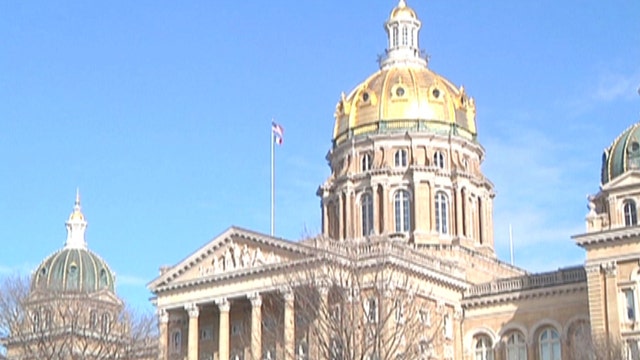Iowa Law Students May Get to Pass on the Bar Exam
Des Moines – Law students in Iowa may soon be able to skip taking the bar exam and start practicing law right after graduation—as long as they stay in the state.
The Blue Ribbon Committee of the Iowa State Bar Association has proposed the change and it could become law if approved by the Iowa Supreme Court this summer.
President of the Iowa State Bar Association, Guy Cook, is leading the effort and says the change would benefit both lawyers and residents. “It’s really about trying to do something innovative and forward-thinking that protects citizenry and provides benefits to the next generation of lawyers.”
Currently, students in the state have to wait at least four months between graduation and the bar exam, which supporters of the bill say causes graduates to lose money and time they could have been working and bringing home a paycheck.
The proposal would only exempt Iowa law school students who are planning to practice in the state. Students from law schools outside of Iowa and students who plan to leave the state will still need to take the bar exam in their respective states.
Iowa law students would be required to take an elective class on Iowa law and procedure as part of their curriculum and pass the currently-required character and fitness tests and an ethics exam.
Upon completion of the approved classes and tests, the students would be allowed to practice under an in-state diploma privilege. Wisconsin is the only other state to use diploma privilege.
Cook says opponents’ worry of less competent lawyers in the state is unfounded. “We have a laboratory next door that’s been doing it for 75-years. No one questions the competency of lawyers from Wisconsin,” he says.
Cook says that the diploma-privilege would reduce the downtime students face between graduation and the bar, which means they would get into the workforce earlier and start at paying down their loans.
“There’s a lot of money spent in the interim, between when you graduate and the bar,” says second year law student Rob Evans. “It’s a lot of time learning which is great, but it really runs up those bills, especially when you already have bills from law school.”
The rules might also keep more lawyers in the state, which would be good for its rural areas that are becoming deplete of young lawyers.
“If we can do something to reduce the amount of student debt, we can get more students interested in practicing in the rural communities and that would be a good thing for the state,” says Allan Vestal, dean of Drake Law School in Des Moines.
Evans says having the benefit of not having to take the bar would incentivize him to stay in the state. “To be able to start right out of law school is a huge benefit.”
But not all lawmakers are on board with the proposal.
“As someone who took the bar, I think they ought to take the bar,” said Iowa Gov. Terry Branstad at a press conference Monday. “It’s been good for protecting the quality and integrity of the legal profession in our state.”
However, he continued to say that when he took the bar, the results were returned within a few days, a quicker turnaround than today. The lengthy time gap is one of the main reasons the Blue Ribbon Committee hopes to have this proposal approved.
The Iowa State Bar Association hopes to replace the current bar exam given in Iowa with a Uniform Bar Exam (UBE) that’s used in and transferable to 14 other states. (Alabama, Alaska, Arizona, Colorado, Idaho, Minnesota, Missouri, Montana, Nebraska, New Hampshire, North Dakota, Utah, Washington and Wyoming)
The UBE would be given to out-of-state students and to those who plan to leave after graduation.
The currently-used Multistate Bar Exam (MBE) is made up of 200 multiple-choice questions and eight essay questions. The MBE exam does not have any questions that specifically relate to Iowa law.
Iowa is home to two accredited law schools; University of Iowa College of Law and Drake University Law School.
There is another proposal brought up in Iowa by Legal Aid to allow law school graduates to practice pro-bono in the state while they are waiting for the bar exam results. However, Dean Vestal says that still doesn’t address the student debt issue.




















